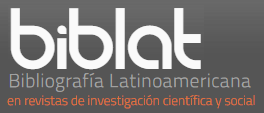Dentistry in the elderly: considerations on the oral health status of the elderly members from Commerce and Social Service (SESC) in Londrina, Paraná
DOI:
https://doi.org/10.5433/1679-0367.1998v19n1p21Keywords:
Population ageing, oral health, the elderly.Abstract
The Senior population, those over sixty years of age, is increasing in significance within the national scenario and is expected to reach 8% of the Brazilian population in the year 2000 and 15% in 2025. Aiming to analyze the oral health status of the elderly members of the Commerce and Social Service Association (SESC) of Londrina, Paraná, 102 persons ranging from 52 to 85 years of age were interviewed and clinically examined. The results evidenced that 89.2% of the interviewed persons consider having teeth as an important factor for health; 56.9% are satisfied with their oral health; 66.7% state that they can chew well, although 52.0% feel some oral discomfort; 76.5% obtained orientation on how to take care of their tee/h; 79.4% use the toothbrush for oral hygiene and 18.4% brush their teeth 3 or more times a day. It was also observed that the practice of multiple extractions is still frequent in Dentistry practice, as demonstrated by the average number of 8.11 of natural teeth per person. The results also evidence a need of more attention to the oral health of the elderly. Therefore, procedures for promoting oral health should be addressed not only to children, young people and adults hut also to the elderly and such changes, in the Dentistry School curriculum, as the inclusion of specific courses which could guide the students in record to their performance as professional surQeon-dentists in terms of dealing with the "old age" and the "elderly" would be convenient.
Downloads
Downloads
Published
How to Cite
Issue
Section
License
Copyright (c) 2010 Semina: Ciências Biológicas e da Saúde

This work is licensed under a Creative Commons Attribution-NonCommercial 4.0 International License.
adopts the CC-BY-NC license for its publications, the copyright being held by the author, in cases of republication we recommend that authors indicate first publication in this journal.
This license allows you to copy and redistribute the material in any medium or format, remix, transform and develop the material, as long as it is not for commercial purposes. And due credit must be given to the creator.
The opinions expressed by the authors of the articles are their sole responsibility.
The magazine reserves the right to make normative, orthographic and grammatical changes to the originals in order to maintain the cultured standard of the language and the credibility of the vehicle. However, it will respect the writing style of the authors. Changes, corrections or suggestions of a conceptual nature will be sent to the authors when necessary.
This Journal is licensed with a license Creative Commons Assignment-NonCommercial 4.0 International.

















